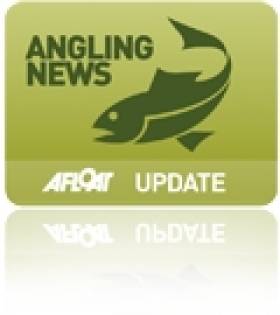Displaying items by tag: salmon lice
Salmon Farms Can Have Significant Impact on Wild Salmon & Sea Trout Stocks
A definitive scientific paper, reviewing over 300 scientific publications, has just been published in the prestigious journal Aquaculture Environment Interactions on the effects of sea lice on sea trout stocks. A team of top international scientists from Norway, Scotland and Ireland reviewed all available published studies on the effects of sea lice and have concluded that sea lice have negatively impacted wild sea trout stocks in salmon farming areas in Ireland, Scotland and Norway.
The paper entitled “Effects of salmon lice Lepeophtheirus salmonis on wild sea trout Salmo trutta—a literature review” (https://research-repository.st-andrews.ac.uk/handle/10023/7295) reached its conclusions based on comprehensive studies of the effects of salmon lice from over 300 scientific publications. The project was funded by the Norwegian Seafood Research Fund which provides investment in Norwegian seafood industry-based R&D with the objective of creating added value for the seafood industry.
The study also examined the potential effect of sea lice on salmon and concluded that sea lice have a potential significant and detrimental effect on marine survival of Atlantic salmon with potentially 12-29% fewer salmon spawning in salmon farming areas. These conclusions concur with previously published Inland Fisheries Ireland (IFI) research on the potential impact of sea lice from marine salmon farms on salmon survival.
The studies reviewed indicate that salmon farming increases the abundance of lice in marine habitats and that sea lice in intensively farmed areas have negatively impacted wild sea trout populations. The effects of sea lice on sea trout are increased marine mortality and reduced marine growth. This new study confirms the evidence collected since the early 1990’s in Ireland regarding the impact of sea lice on wild sea trout stocks, particularly in relation to the collapse of Connemara’s sea trout stocks.
IFI have consistently called for marine salmon farms to maintain sea lice levels close to zero prior to and during the wild sea trout and salmon smolt migration period in spring. IFI have also raised concerns regarding the location of salmon farms in the estuaries of salmon and sea trout rivers.
The Board of Inland Fisheries Ireland welcomed this important publication and commented: “This new scientific review paper confirms the need for very tight regulation of sea lice levels on salmon farms and raises legitimate concerns with regard to the potential impact of new large scale salmon farms proposed along Irelands west coast on salmon and sea trout stocks. Regulators will now need to consider the results of this comprehensive review when making decisions on the sustainability and approval of future marine salmon aquaculture licences and the regulation of sea lice at existing sites so as to ensure no negative impact on salmon and sea trout stocks.”
Vigilance Urged Over Salmon Lice
Salmon farmers have been reminded of the dangers of egg-bearing lice, despite a "sustained reduction" in their numbers according to a new report.
"Pest control will always remain a challenge requiring active management," said Minister of State for Fisheries Sean Connick, as quoted by The Irish Times.
The minister spoke at the launch of a report by the National Implementation Group (NIG) for improving pest control in Ireland's salmon farms.
The report noted that the majority of facilities maintained lice level below trigger levels for treatment, and where treatment was necessary it was conducted effectively.
In response to the report, Salmon Watch Ireland (SWI) claims that the risks to wild salmonids "by inadequately regulated salmon farming" are being ignored, threatening juvenile salmon and sea trout.
It also highlighted the fact that Ireland is being pushed by the European Commission to conform salmon farming to EU Habitats Directive standards for wild salmon.
"The reality is that the regulation of the salmon farming industry is a shambles," said the SWI in a statement.
The Irish Times has more on the story HERE.





























































